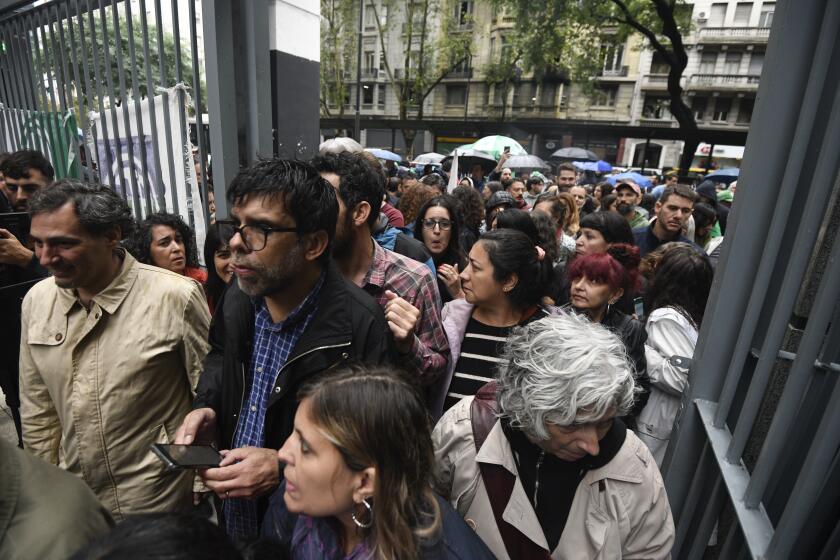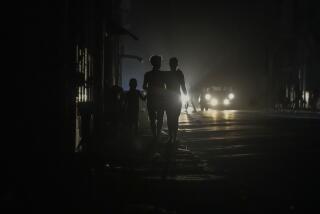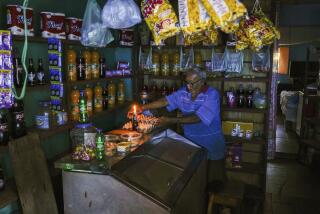Labor unions’ 1-day strike in Argentina paralyzes daily life

BUENOS AIRES, Argentina — Argentina’s biggest trade unions mounted one of their fiercest challenges to the libertarian government of President Javier Milei, staging a mass general strike on Thursday that led to the cancellation of hundreds of flights and halted key bus, rail and subway lines. Main avenues and streets, as well as major transportation terminals were left eerily empty.
The 24-hour strike against Milei’s contentious austerity measures and deregulation push threatened to bring the nation of 46 million to a standstill as banks, businesses and state agencies closed in protest.
Most teachers couldn’t make it to school and parents kept their kids at home. Trash collectors walked off the job — as did health workers, except for those in emergency rooms.
Argentina says that it had cut 15,000 state jobs as part of President Javier Milei’s aggressive campaign to slash spending.
The government said transport service disruptions would prevent some 6.6 million people from making it to work. That was apparent during the morning rush hour Thursday as few cars could be seen on streets typically snarled with traffic. Garbage was already piling up on deserted sidewalks.
The country’s largest union, known by its acronym CGT, said it was staging the strike alongside other labor syndicates “in defense of democracy, labor rights and a living wage.”
Argentina’s powerful unions — backed by Argentina’s left-leaning Peronist parties that have dominated national politics for decades — have led the pushback to Milei’s policies on the streets and in the courts in recent months.
“We are facing a government that promotes the elimination of labor and social rights,” the unions said, seeking to portray Thursday’s strike as an explosion of public outrage over Milei’s free-market policies that have disproportionately affected poor and middle classes.
The new 20,000-peso note is expected to hit the streets next month in a bid to ‘facilitate transactions between users,’ the central bank said.
The government downplayed the disruption as a cynical ploy by its left-wing political opponents.
“They want to keep Argentina on a path of servitude,” said presidential spokesperson Manual Adorni of the union leaders, accusing them of “extorting Argentines to try to return to power.”
Milei posted a photo on Instagram on Thursday holding up a soccer jersey emblazoned with the words “I DON’T STOP” in bold.
The escalation comes a week after Milei scored his first legislative victory, pushing the omnibus bill at the center of his economic overhaul through the lower house of Congress after being forced to withdraw a more sweeping version earlier this year. The state overhaul bill and proposed tax packages are now being debated in the opposition-dominated Senate.
In Argentina, warring drug traffickers are banding together and terrorizing parts of the city of Rosario that were previously considered safe.
Thursday’s action marked the second nationwide strike since Milei came to power last December, slashing spending, laying off government workers, and freezing all public works projects in a bid to rescue Argentina from its worst financial crisis in two decades. He has also devalued the local currency, stabilizing the peso but also causing prices to soar. Argentina’s annual inflation rate now nears 300% — considered the highest in the world, outpacing even crisis-stricken Lebanon.
For weeks, raucous demonstrations gripped Buenos Aires, the country’s capital — in sharp contrast to the silence prevailing on the streets Thursday.
Argentina’s main airport warned travelers of disruptions and to check in with their airlines as more than 100 departing flights and 100 arriving flights were canceled by 5.am. The country’s flagship carrier, Aerolineas, announced it had canceled some 200 domestic and regional flights and rescheduled over a dozen international flights.
Debre writes for the Associated Press.
More to Read
Sign up for Essential California
The most important California stories and recommendations in your inbox every morning.
You may occasionally receive promotional content from the Los Angeles Times.












